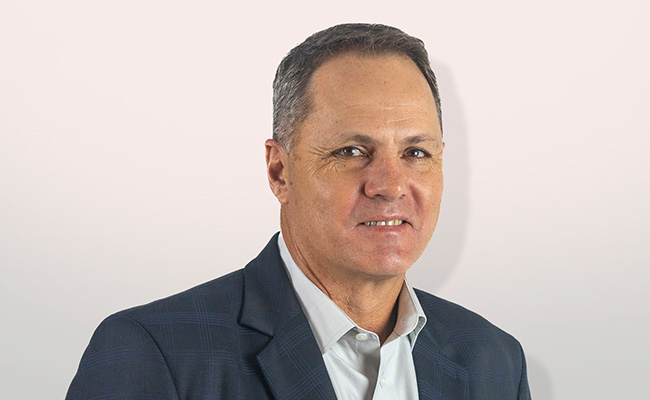For those dying to invest in some or other lucrative application of AI, the JSE will have a new stock to take a punt on before the end of this year.
That’s if everything goes according to plan for Optasia, a company hoping to raise R1.3bn by issuing new shares and another R5bn from institutions by selling down the stakes of existing investors.
This fintech styles itself as “a leading AI-led platform that unlocks unprecedented opportunities in digital finance”. What does that mean in human-generated language, you ask?
Simply: granting small loans – whether airtime advances or straight up lending – to the “unbanked”. Hmm, microlending … to the unbanked … sounds a bit like it’s been done before. You know, take the words capital and technology, put them together in a red and blue logo, and add a digital jingle …
The difference is that Optasia operates not in one market, but in 38 – and almost all of them developing countries. South Africa accounts for between 10% and 15% of revenue, according to CEO Salvador Anglada, who spoke to Currency from Greece, where most of the fintech’s developers are based.
Anglada acknowledges that a company like Capitec is a competitor of sorts. But it’s also a possible client as Optasia is a B2B2X business. That’s management-speak for business-to-business-to-customer, so the company does not interact with the actual end-user.
Think of it this way: you take a loan from your own mobile phone operator, but what do they know about assessing your creditworthiness and determining the amount they will fork out to you? Not enough. They might have the right data, but not the capacity to sort all of these “unstructured, unclean” numbers into something useful, says Anglada. This is where Optasia does whatever goes on behind the scenes to gain a deeper understanding of each customer, and the overall market in which the platform operates.
“The AI engine is the core of the platform and utilises information from multiple sources to generate over 100,000 unique features per customer. As a result, Optasia’s credit decisioning capabilities continually improve, enabling network members to benefit from powerful flywheel effects,” reads the announcement.
Flywheel, now there is a word you expect to find in any tech prospectus.
Anglada likes markets that are populous – places such as the Philippines, or Egypt, or Ethiopia – where there is decent mobile penetration, where mobile-wallets have been widely adopted, and where there is a sizeable unbanked population.
Boasting some 121-million monthly active users, the company processes more than 32-million loan transactions per day. Using that, in the latest half-year, Optasia generated $117.2m in revenue and raked in a profit of nearly $54m. And there is plenty of data to mine, as it has access to more than 860-million mobile subscribers through its network of distribution partners and financial institutions. Think here of the likes of Vodacom and MTN, and traditional banks in all those dozens of countries.
Why Joburg?
Sounds incredible. So why then float this whale-in-waiting in Joburg of all places? Have the bosses not read those stories about the demise of South Africa as an investment prospect and the slide in the JSE’s relevance as a destination for primary listings? Anyone would be forgiven for wondering why a seemingly exciting fintech such as Optasia would wade into these murky waters (possibly gushing from a burst municipal pipe).
The company obviously wants to attract investors that have a feeling for its business model. And mobile wallets and microlending are just not that well understood in the developed world.
Also, its largest shareholder, though based in the channel island of Jersey, has a distinctly South African flavour. Chronos Capital, with a stake of 33%, was founded by former financial sector CEOs Nic Kohler (Hollard), Willem Roos (Outsurance), Michael Jordaan (FNB) and Roger Grobler (Australia’s Real Insurance). Optasia was actually the first investment made by the Ethos AI Fund 1 back in 2018, and Chronos then increased its stake in 2022.
Love them or hate them, South African asset managers and retail investors will at least know those names.
There are reams of numbers in Optasia’s announcement and a deck of 115 slides that give more details. Hidden in the weeds you will find that the company is steadily moving deeper into what it calls microfinance solutions (MFS) as a counterbalance to its airtime credit solutions (AFS).
Merchant West Investments equity analyst Josh Viljoen sees this changing mix of the lending base as a positive. Microfinance expanded monthly active users from 1.6-million in 2022 to 7.9-million in 2024 and now contributes more revenue than airtime. “MFS benefits from a higher take rate, resulting in stronger unit economics than ACS,” he says.
Anglada confirms that microfinance now represents some 65% of revenue. The growth has helped the company double its business in the latest half-year.
Pricing of its shares is yet to be determined, so it’s not clear what the business as a whole will be worth. But the company itself is bullish; it’s even aiming to start doing one of the rarest of things for a young tech company by the 2027 financial year: pay dividends.
“In a market short of new listings, a fast-growing, AI-enabled fintech is likely to attract investor interest,” adds Viljoen. “Merchant West Investments are actively evaluating the company to assess whether this presents an attractive investment opportunity. ”
Top image: Optasia CEO Salvador Anglada. Picture: Supplied; Rawpixel/Currency collage.
Sign up to Currency’s weekly newsletters to receive your own bulletin of weekday news and weekend treats. Register here.













